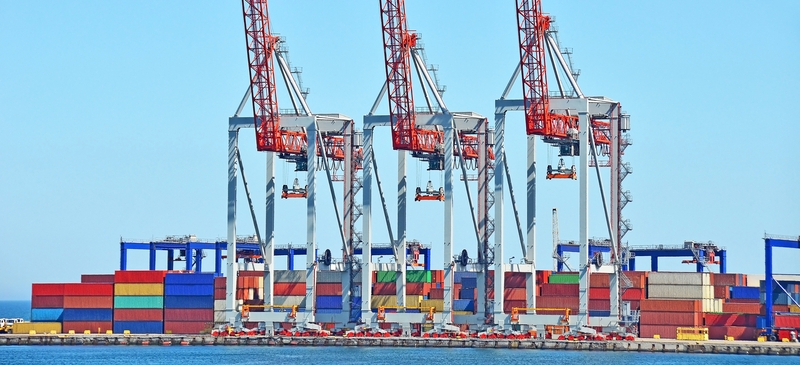
Britain should abandon hope of a revival in EU demand
The British government's attempt to rebalance the UK economy has failed. In 2012, the deficit on the country's current account (the broadest measure of foreign trade) was larger than in any year since 1990. Britain's problem is not its trade performance with non-European markets: exports to these are rising strongly and the country runs a small surplus with them. The UK's problem is the weakness of its exports to the EU, and the huge trade deficit it runs with its EU partners. As the eurozone's biggest trade partner, the UK is bearing the brunt of the eurozone's neglect of domestic demand.
The UK's current account deficit narrowed from 2.3% of GDP in 2007 to 1.3% in 2011, before jumping to an estimated 3.5% of GDP in 2012. There is no doubting the scale of the challenge posed by this deterioration. After all, a key element of the government's growth strategy is to rebalance the economy away from an excessive dependence on private and public consumption in favour of business investment and exports. It was relying on a positive contribution to economic growth from net trade (exports minus imports) to help offset the impact of fiscal austerity, and to narrow the country's external deficit.
The UK's persistently weak trade position is often attributed to British firms' failure to tap fast-growing markets outside Europe. This narrative does not bear scrutiny. The truth is that British exports, and with it chances of rebalancing the economy, are being held back by the country's trade with the rest of Europe rather than with the supposedly hyper-competitive economies in Asia or the Americas. The value of exports to non-EU markets is growing quickly: between 2006 and 2012 they increased by half. The value of exports to the EU, meanwhile, rose by just 5% over this period. As a result of these trends, the UK earned almost 60% of its foreign currency earnings from non-EU markets in 2012, up from under a half in 2006.
With imports from the EU easily outpacing exports, the trade position with the EU has deteriorated steadily. In 2012, the UK is estimated to have run a current account deficit with its EU partners equivalent to 4.5% of GDP, double the deficit of five years ago. The value of goods exports to the EU are estimated to have fallen by 5% in 2012, led by declines of 18% to Italy and 12% to Spain. By contrast, exports of goods and services to the rest of world rose 5% in 2012, and trade with these markets remained in surplus.
The UK runs a surplus with the non-European world, which accounts for almost three-fifths of its foreign current earnings, but is massively in deficit with the EU, which accounts for just over two-fifths. This is not because the UK is "competitive" with the rest of the world and uncompetitive in Europe, but because of the collapse in demand across the EU. UK exports are rising to the rest of the world because demand is rising in the rest of the world, and are falling to EU markets because demand for imports is falling across the eurozone. The reason why the UK's current account deficit rose sharply in 2012 and those of Italy and Spain is because spending in their economies has declined dramatically, leading to a steep fall in imports.
What can the UK do about its increasingly unbalanced trade with the EU? It would make little sense for the UK to leave the EU. Not only is EU membership no obstacle to increased trade with the rest of the world, it is probably facilitating such growth: with the growth of bilateral trade deals in place of multilateral ones, it pays to be part of a heavyweight negotiating bloc. And, in any case, leaving the union would further depress Britain's exports to EU member-states.
The British government could emulate the Italians and the Spanish and cut public spending by so much that import demand implodes. This would lead to a sharp narrowing of the UK's trade deficit with the EU. But such a strategy would be politically impossible in the UK.
Cameron and Osborne could mount a campaign for more expansionary economic policies across the eurozone. However, even if the British government were not increasingly isolated and resented within the EU, such pleas would fall on closed ears: the rest of the eurozone could also justifiably argue that they are only doing what the British government has routinely argued that every country must do: cut public spending and "live within its means".
The best option for the British government is to give up on any hope that stronger EU demand for British exports will help rebalance the UK economy. Instead, it should concentrate all its efforts on boosting domestic economic activity. Less austerity and a large-scale housing and infrastructure programme would be a good start. Combined with aggressively expansionary monetary policy – the incoming governor of the Bank of England, Mark Carney, has indicated that monetary policy is set to remain very loose – this should be enough to drive an economic recovery.
Sterling would no doubt come under pressure, but the alternatives are worse. And a weakening of sterling against the euro could help to prevent trade with the EU becoming progressively more lopsided.
